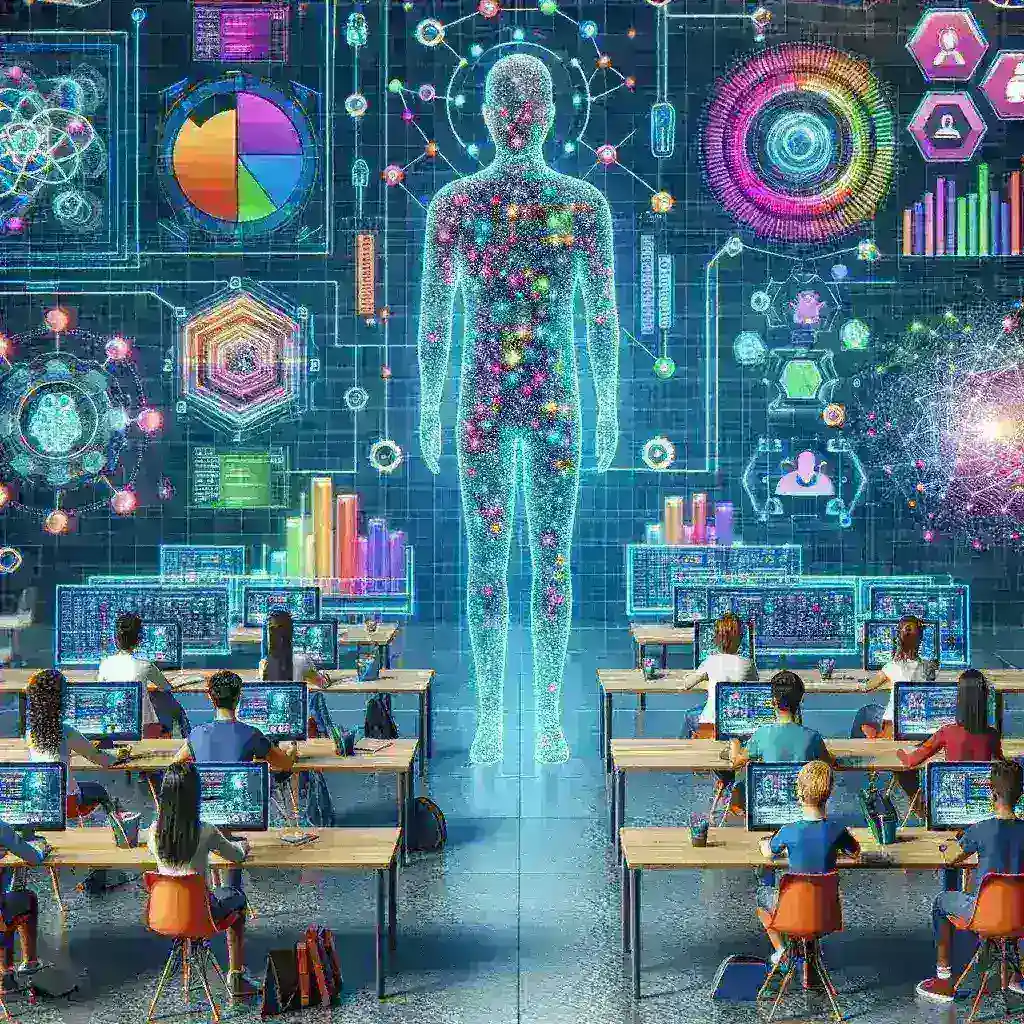Byju’s Adds AI-Driven Student Performance Tracking
Introduction
In an era where education technology is constantly evolving, Byju’s, one of the leading ed-tech companies, has recently made headlines by incorporating AI-driven student performance tracking into its platform. This innovative feature aims to provide tailored educational experiences that adapt to the unique needs of each student, ensuring a personalized learning journey.
Understanding AI-Driven Student Performance Tracking
AI-driven student performance tracking refers to utilizing artificial intelligence to monitor and analyze a student’s learning behaviors, progress, and areas of difficulty. Byju’s has harnessed this technology to enhance its educational offerings, making learning more engaging and effective.
The Technology Behind It
At the core of this feature is advanced machine learning algorithms that analyze data collected from various student interactions within the Byju’s platform. These algorithms track metrics such as:
- Time spent on each subject
- Quiz and test performance
- Engagement levels during lessons
- Patterns in incorrect answers
This data is then used to generate insights that help educators and learners identify strengths and weaknesses, ultimately leading to improved academic outcomes.
Benefits of AI-Driven Tracking
The introduction of AI-powered tracking brings numerous benefits to both students and educators:
- Personalized Learning: Students receive customized content tailored to their learning pace and style, which enhances engagement and retention.
- Real-Time Feedback: Instant feedback allows learners to understand their mistakes and rectify them promptly, fostering a growth mindset.
- Resource Optimization: Educators can focus on areas where students require the most support, ensuring efficient use of instructional time.
- Enhanced Motivation: Visual progress tracking empowers students, making them more likely to stay motivated and committed to their studies.
Historical Context of Educational Technology
The journey of educational technology has been remarkable. From the advent of interactive whiteboards in classrooms to the rise of online learning platforms, technology has consistently revolutionized the way knowledge is imparted and acquired. Byju’s has played a pivotal role in this transformation, emerging as a frontrunner in India’s ed-tech landscape.
The Transition to AI
Historically, the concept of using data to improve education isn’t new. However, the introduction of AI marks a significant turning point. Prior to AI, educational tools primarily focused on delivering content. With AI, there’s a distinct shift towards analyzing how students learn, paving the way for data-driven insights that enhance educational strategies.
Future Predictions
The implications of AI-driven student performance tracking extend beyond immediate benefits. As technology continues to evolve, here are a few predictions for the future:
- Increased Integration: More educational platforms will integrate AI to provide dynamic learning experiences.
- Data Privacy Concerns: As data collection increases, so will concerns regarding privacy and security. Educators and companies must ensure that data is handled responsibly.
- Global Learning Communities: AI can facilitate collaboration across borders, allowing students from different cultures to learn together in a more meaningful way.
Challenges and Considerations
While the benefits are clear, there are challenges associated with AI-driven tracking:
- Data Quality: The effectiveness of AI relies heavily on the quality of data collected. Poor data can lead to misleading insights.
- Implementation Costs: Integrating AI technologies into existing systems can be costly and require significant training for educators.
- Ethical Considerations: The use of AI in education raises ethical questions regarding bias and accountability in automated decision-making.
Practical Examples of Implementation
In practical terms, Byju’s has incorporated AI-driven tracking in various subject areas:
Mathematics
For instance, in mathematics, the AI system can analyze a student’s performance on different types of problems. If a student struggles with geometry but excels in algebra, the platform will adjust the content accordingly, offering more geometry practice questions.
Science
Similarly, in science subjects, the AI can track how well students understand core concepts, such as the laws of physics or chemical reactions, and recommend supplementary resources to reinforce their learning.
Language Learning
For language learners, the AI can provide tailored vocabulary quizzes based on the student’s comprehension level, ensuring that they build upon what they already know.
Expert Quotes
Experts in the field of education technology have lauded Byju’s initiative. Dr. Rajesh Kumar, an educational psychologist, states, “AI-driven tracking represents the future of personalized learning, allowing educators to cater to the individual needs of each student effectively.”
Cultural Relevance
The cultural context in which Byju’s operates is also significant. In a country as diverse as India, where educational needs vary widely, the ability to personalize learning experiences is critical. This technology allows for a more inclusive approach to education, addressing the varying levels of proficiency among students.
Conclusion
Byju’s addition of AI-driven student performance tracking signifies a monumental step forward in ed-tech. As education continues to adapt to the digital age, such innovations will play a crucial role in shaping the future of learning. By leveraging AI, Byju’s enhances not only the academic performance of students but also their overall learning experience, paving the way for a more informed and capable generation.
Call to Action
As we look to the future, it is essential for educators, parents, and students to embrace these changes. By participating in platforms like Byju’s, learners can take advantage of these innovative technologies that promise to transform education for the better.

Leave a Reply